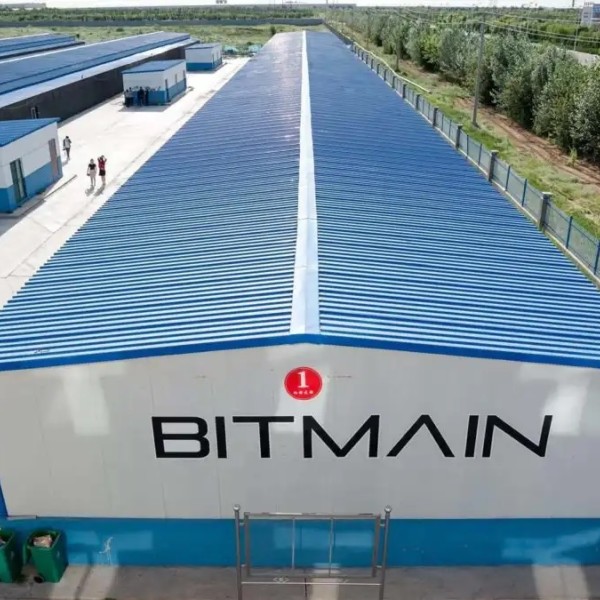The new narrative of MegaETH revenue: partnering with Ethena to launch the native stablecoin USDm
MegaETH has officially launched USDm, a native stablecoin designed to support various innovative applications on MegaETH.
Original source: MegaETH
MegaETH represents the ultimate battle within the ETH ecosystem, supported by key figures and institutions in the blockchain space such as Vitalik, Joseph Lubin, and Dragonfly. It boasts extremely low latency (only 10 milliseconds) and exceptionally high performance (TPS up to 100,000), providing the infrastructure possibility for blockchain’s “iPhone moment.”
The majority of L2s’ profit models are based on adding extra profit margins to sequencer fees and gas fees. However, this also creates a conflict between users and public chains: the more users pay, the thicker the chain’s profits become.
To achieve large-scale growth of Dapps (such as high concurrency) and enable new scenarios (such as high-frequency quantitative trading), low network fees are a killer tool for growth. Just as Memecoins require low network fees—although they originated in the ETH ecosystem, their large-scale growth ultimately occurred in the Solana ecosystem.
As technology advances (increased throughput, reduced data costs), the profit margin from sequencer revenue becomes increasingly unstable and difficult to sustain long-term; raising fees to protect profits directly suppresses innovation and growth.
MegaETH, in collaboration with Ethena, has launched a brand-new native stablecoin, USDm, aimed at unifying the network incentive mechanism. This allows MegaETH to operate sequencers at cost price, bringing the lowest usage fees to users and developers.
Through USDm, MegaETH shifts the network’s funding source from “user-paid fees” to “financial returns,” thus supporting network growth.
Today, MegaETH officially releases USDm, a native stablecoin designed to support various innovative applications on MegaETH. USDm is issued through Ethena’s stablecoin architecture (see below) and is designed for deep integration into MegaETH’s wallets, applications, and on-chain services.
“USDm means users can enjoy lower fees, and application developers have a broader design space. MegaETH is pleased to collaborate with Ethena to create a win-win situation for all participants in the ecosystem.”
Reserves and Returns
USDM v1 is issued based on Ethena’s USDtb track, with reserves mainly invested by Securitize in BlackRock’s tokenized U.S. Treasury fund BUIDL, while retaining some liquid stablecoins to meet redemption needs. This provides transparent, institutional-grade reserve support and a predictable yield base.
Reserve Flexibility
Ethena’s stablecoin architecture is designed for long-term scalability, enabling MegaETH to flexibly adjust the collateral composition of USDM and include other existing or future Ethena products (such as USDe). USDM v1 will launch based on USDtb, but its underlying design allows the reserve structure to be dynamically adjusted as market conditions change.
Operating Expense Coverage
The yield from the underlying reserves will be directly used to cover the operating costs of the sequencer. This allows us to price gas at operating cost, maintaining low and stable fees for users and developers without relying on extra profit margins. This benefits major blockchain scenarios such as high-frequency quantitative trading and payments.
Realignment of Incentive Mechanisms
As costs rise due to network growth, we do not need to raise user fees to maintain sustainability. The more network activity, the more prosperous the ecosystem; the stablecoin’s yield, in turn, provides financial support for the network. When transaction fees are stable and below one cent, many application categories that are unfeasible under “several cents per operation” conditions become viable.
Currently, stablecoins already active on MegaETH, such as USDT0 and cUSD, remain first-class citizens in the ecosystem and are widely used in wallets, payment agents, DEXs, and money markets. Among them, USDT0 serves as the standard USDT representation on MegaETH. We will continue to maintain its deep liquidity, oracle coverage, and optimal execution routing, so developers and users can choose the most suitable asset according to their needs.
Why Choose Ethena?
Ethena is the protocol behind USDe, the third largest and fastest-growing USD-denominated crypto asset in history. Ethena’s current TVL exceeds 13 billions USD, with a user base among the top in DeFi protocols, and has been integrated with several top centralized exchanges and mainstream DeFi applications. Ethena has demonstrated the ability to scale quickly and securely, becoming the third largest USD issuer in the crypto space.
Ethena’s reserve-backed stablecoin channel, USDtb, has achieved rapid adoption and institutional application. Currently, USDtb’s circulation is about 1.5 billions USD, and as the first stablecoin expected to comply with the “GENIUS Act,” it is advancing in cooperation with Anchorage Digital Bank. USDtb’s reserves are mainly invested by Securitize in BlackRock’s tokenized U.S. Treasury fund BUIDL (target allocation about 90%).
At the same time, Ethena and Securitize have achieved 24/7 atomic swaps between USDtb and BUIDL, further enhancing settlement efficiency and transparency.
We are delighted to partner with Ethena to bring a top-tier DeFi user experience to MegaETH.
About Ethena
Ethena is the protocol behind USDe, the third largest and fastest-growing USD-denominated crypto asset in history. Ethena’s TVL currently exceeds 13 billions USD, with one of the largest user bases among DeFi protocols, and has been integrated with several top centralized exchanges and mainstream DeFi applications.
About MegaETH
MegaETH is the first real-time blockchain, secured by Ethereum and powered by a highly optimized execution environment and heterogeneous architecture. It enables streaming throughput, boasts extremely low latency (only 10 milliseconds), and high performance (TPS up to 100,000). Developers can scale applications through real-time state streaming, and users can experience instant transactions while fully retaining Ethereum’s composability.
This article is a submission and does not represent the views of BlockBeats
Disclaimer: The content of this article solely reflects the author's opinion and does not represent the platform in any capacity. This article is not intended to serve as a reference for making investment decisions.
You may also like
Every country is heavily in debt, so who are the creditors?
As national debts rise, the lenders are not external forces, but rather ordinary people who participate through savings, pensions, and the banking system.

If Bitmain is sanctioned, which American mining company will fall first?
The U.S. government is conducting a stress test on Bitmain, with the first casualties likely to be domestic mining farms in the United States.

Aethir unveils strategic roadmap for the next 12 months, accelerating the construction of global AI enterprise computing infrastructure
Aethir's core vision has always been to drive the realization of universal, decentralized cloud computing capabilities for users worldwide.
Elon Musk Calls Bitcoin a "Fundamental" and "Physics-Based" Currency
Elon Musk stated, "In a future where anyone can have anything, I believe you will no longer need currency as a database for the allocation of labor."

